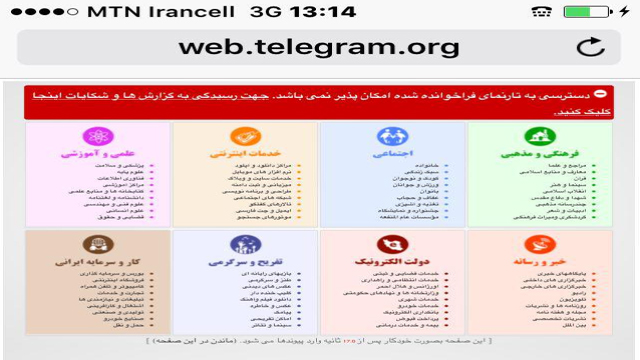Popular Instant Messaging Applications Severely Interrupted in Iran
A month after a warning by Iran’s Revolutionary Guards’ Center for Investigation of Organized Crime that the use of Telegram violated Iran’s crime laws, access to the popular messaging network in Iran was severely interrupted on November 16, 2015.
Access to Telegram on the HTTP protocol (an insecure computer network protocol) was blocked in Iran and users could only get on the network through their smartphones or the HTTPS protocol (a secure network protocol which is more difficult to block).
The warning, published on the Guards’ Gerdab website in an article on October 20, 2015, stated that content by Iranian users on Telegram violated Article 21 of the country’s cyber crime laws.
An investigation by the International Campaign for Human Rights in Iran has found that other social media applications have also been affected. One of these applications, IMO, had been gaining more Iranian users after rumors about blocking Telegram intensified. But now it is almost impossible to enter the alternative messaging service. Similar applications known as BeeTalk and Signal have also been very slow to respond for Iranian users.
While the Rouhani administration has sought to impose selective, or “smart” Internet filtering, in which only “objectionable” content is blocked, hardline authorities in charge of Internet censorship have sought to completely block sites or networks deemed objectionable, forcing users to look for other alternatives.
Those authorities have tried to encourage Iranians to use domestic messaging and social media programs within Iran’s National Internet Network that are developed with tools that facilitate covert state monitoring of accounts, but the general response has been negative.







